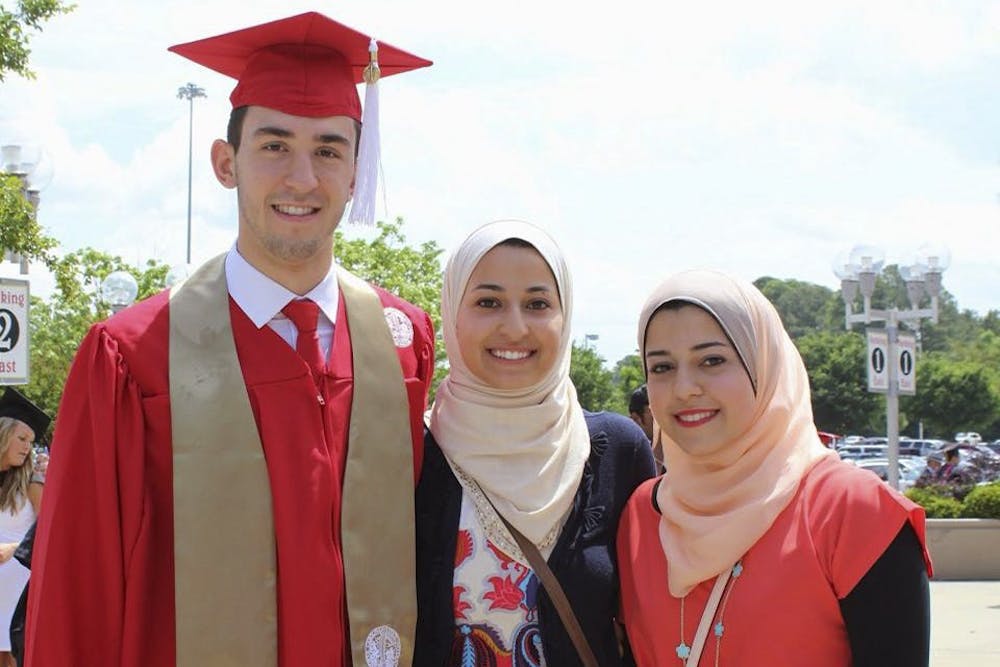The man charged with killing three Muslim students in 2015 will not face the death penalty, according to Durham County’s district attorney. If convicted, he will receive life in prison.
Craig Hicks is charged with three counts of first-degree murder in the fatal shooting of Deah Barakat, 23, Yusor Mohammad Abu-Salha, 21, and Razan Mohammad Abu-Salha, 19, at their Chapel Hill condo on Feb. 10, 2015. Hicks will go to trial this summer.
Mohammad Abu-Salha, the father of Yusor and Razan and father-in-law of Deah, testified before the U.S. House Judiciary Committee on April 9. Abu-Salha vividly recounted the scene and autopsy, the victims' humanitarian work and the violence targeted at the Muslim community.
“Three beautiful young Americans were brutally murdered, and there is no question in our minds that this tragedy was born of bigotry and hate,” Abu-Salha said. “This has happened on too many occasions. Families like mine — regular Americans living regular lives — are left without hope that justice will truly be served.”
Lela Ali, a member of Raleigh-based organization Muslim Women For, said she was upset when U.S. Representative Sheila Jackson Lee, D-Tx, asked if Abu-Salha taught his daughters hatred. She said even though people claim it was a way for Abu-Salha to defend himself, she said he doesn’t need to defend himself and that the question itself was harmful.
“It really shows the type of collective guilt that is placed on the Muslim community and that has been historically placed on the Muslim community to always have to defend itself, to always have to prepare apology speeches, to always have to figure out who’s a terrorist and who's not,” she said. “This collective guilt that’s placed on our community has created fear in our communities, has created silence in our communities and it’s truly dangerous.”
Ali said the United States needs to figure out what a hate crime constitutes, since the national definition, as well as some state statutes, are vague and leave out certain communities.
“I truly believe that no particular punishment that this man will get will really kind of heal the pain that the families are kind of experiencing, or really that the whole community is experiencing — nothing will bring justice in this world,” she said.
Ali said the Muslim community is more focused on seeing a trial happen than the punishment for Hicks, after having waited over two years.



